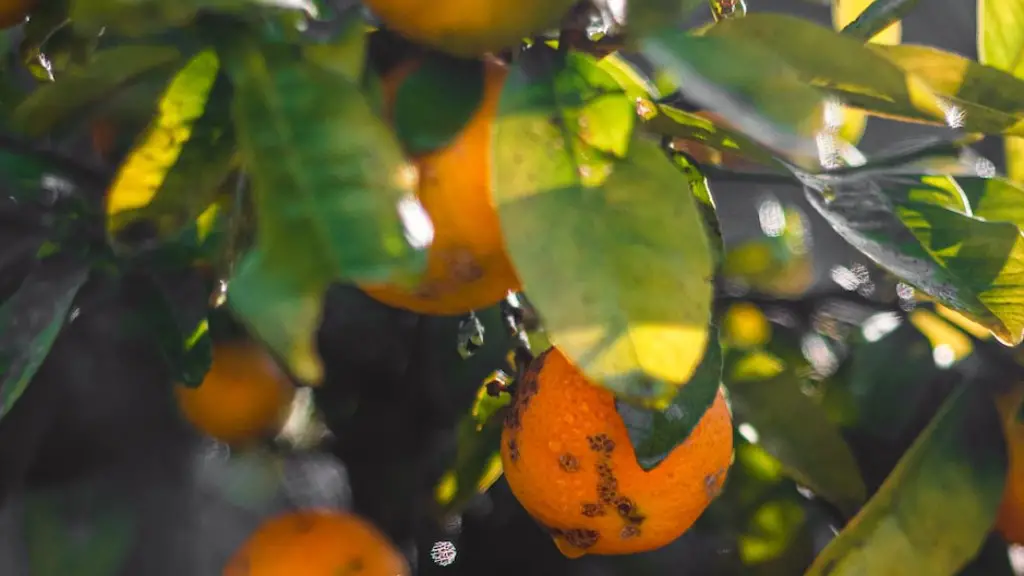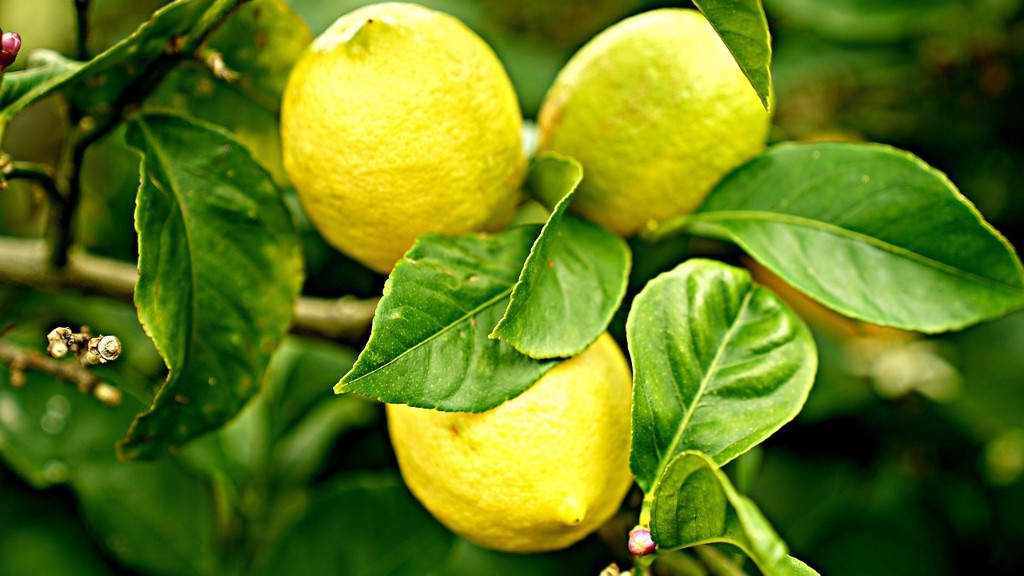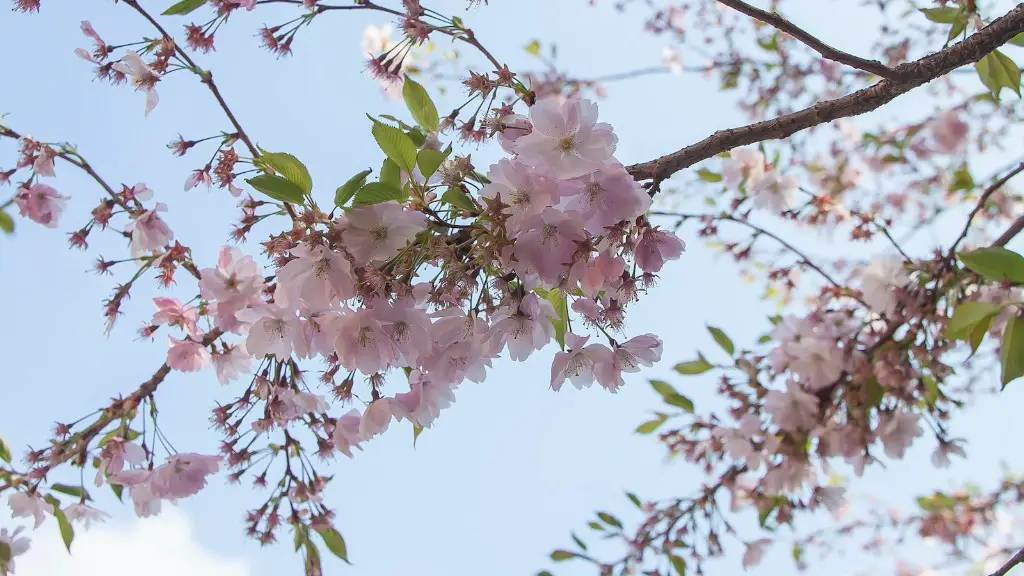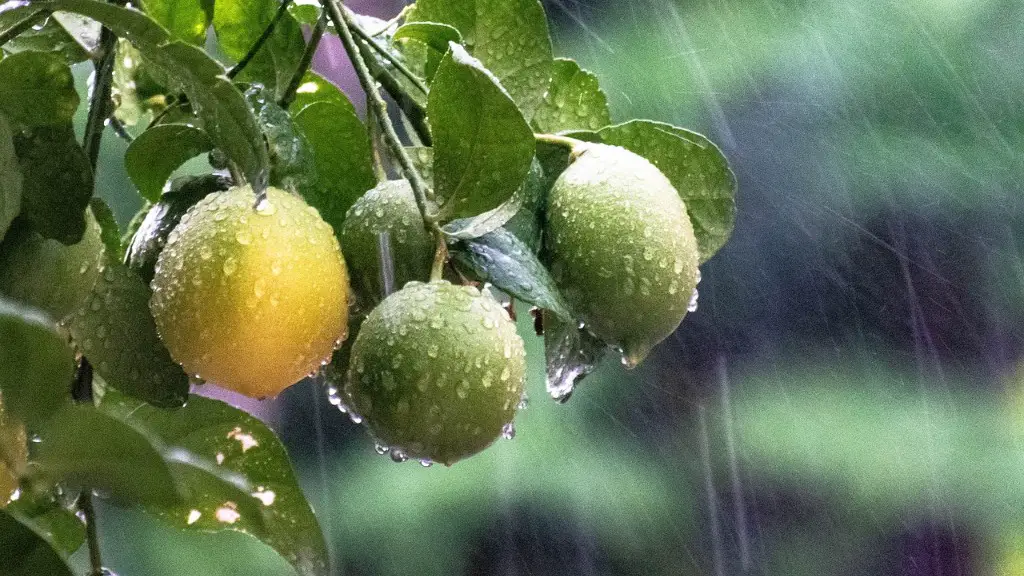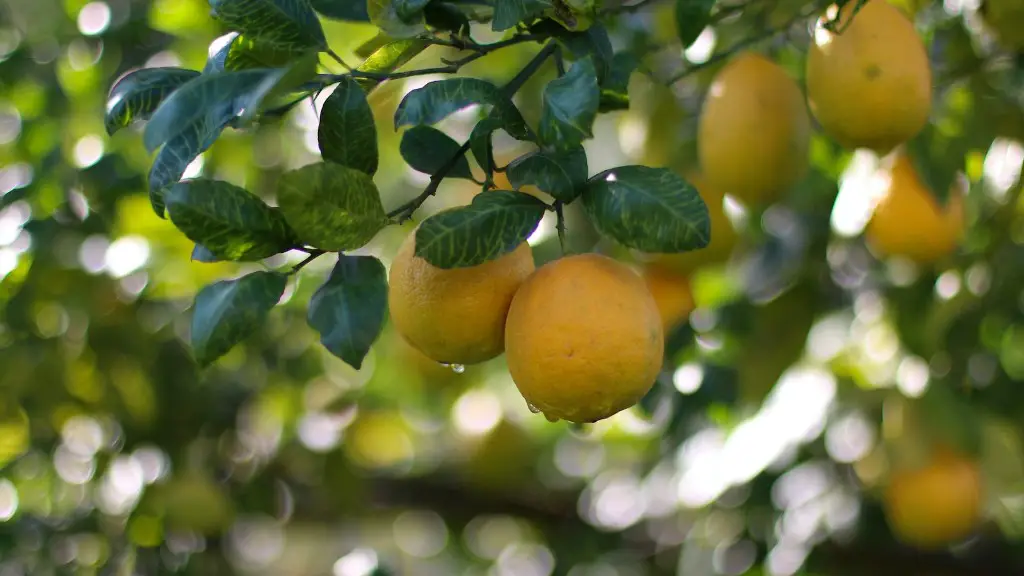The frequency of lemon tree fertilization is essential for its successful cultivation. Generally speaking, a well-established lemon tree requires fertilization every 3-4 months in order to thrive. It’s important to note that not all lemon trees need the same amount of fertilizer, so it’s important to get advice from an expert on the specific nutrient requirements for your particular lemon tree. Understanding the type of fertilizer and the rate at which it needs to be applied are key to successful lemon tree fertilization.
The recommended amount of fertilizer will depend on both the size and age of the tree. Generally, a young lemon tree just two to three feet tall needs a very light amount of fertilizer compared to a mature tree more than 10 feet tall. Therefore, it’s important to adjust the amount of fertilizer you use according to the age and size of your tree, otherwise you may end up over- or under-fertilizing.
The type of fertilizer you choose is also very important when it comes to fertilizing your lemon tree. An organic fertilizer with a balanced blend of nitrogen, phosphorus, and potassium is the best for your lemon tree. Non-organic fertilizers are also an option, however, the use of chemical fertilizers can be damaging to the soil and, in turn, the plant. Furthermore, you’ll need to take into account the pH of the soil when selecting a fertilizer as it needs to be compatible with the type of soil you’re working with.
If you decide to use an organic fertilizer, you should be aware that organic fertilizers typically release their nutrients slowly over time. This means that you won’t need to fertilize as often as with a chemical fertilizer. On the other hand, if your soil is particularly low in nitrogen, you may want to consider adding a top dressing of compost to provide an immediate boost of nitrogen.
Finally, it’s important to remember that too much fertilizer can actually be damaging to your lemon tree. If you over-fertilize your tree you run the risk of burning the roots or causing an imbalance of nutrients, both of which can have a negative effect on the tree’s growth. So it’s important to follow the recommendations of an expert and only use the amount suggested for your particular lemon tree.
Fertilizers
Fertilizers are an important element of successful lemon tree cultivation since they provide essential nutrients that are not naturally present in the soil. There are a few different types of fertilizers to choose from and understanding the difference between them is important when it comes to proper lemon tree fertilization.
Organic fertilizers are a great choice since they release their nutrients slowly and help improve the health and structure of the soil. Organic fertilizers include compost, compost tea, organic compost, and organic liquid fertilizer. Non-organic fertilizers are also a viable option, however, the use of chemical fertilizers as opposed to organic ones can have a damaging effect on the soil and the plant.
When selecting a fertilizer, it’s important to take into account the pH of the soil, as well as the plants needs. Different plants have different nitrogen requirements, for example, and the fertilizer should be tailored to match the particular needs of the plant. Furthermore, you’ll want to ensure the fertilizer contains the essential minerals, such as nitrogen, phosphorus, and potassium, that the plant requires.
Finally, it’s important to remember that when it comes to fertilization, less is more. It can be tempting to over-fertilize your tree but too much fertilizer can be damaging to the lemon tree so it’s important to follow the expert guidelines and only use the recommended amount.
Fertilization Frequency
How often a lemon tree should be fertilized depends on several factors, such as the age, size, and type of fertilizer being used. Generally speaking, an established lemon tree will require fertilization every three to four months in order to thrive but this can vary depending on the type of fertilizer used.
Organic fertilizers, for example, release their nutrients slowly so it may not be necessary to fertilize as often as with a non-organic fertilizer. Furthermore, it’s important to adjust the amount of fertilizer you use according to the age and size of your tree, otherwise you may end up over or under fertilizing.
It’s also important to factor in other methods of providing nutrients to your lemon tree. For example, if the soil is low in nitrogen, it may be helpful to give it a top dressing of compost for an immediate boost. Additionally, mulching your soil year-round will also help improve and maintain the healthy condition of the soil, as it helps to retain moisture and keep the soil cool.
When it comes to fertilization, it’s important to be aware of how often your tree needs to be fertilized and to select the right fertilizer for your tree. Following expert advice and adjusting your fertilizer usage according to the age and size of your lemon tree are key to successful lemon tree fertilization.
Foliar Spraying
Foliar spraying is a great way to provide essential nutrients to your lemon tree in an efficient and effective way. Foliar spraying consists of applying a liquid fertilizer directly onto the leaves of the tree and it has a few distinct advantages. Firstly, it provides an immediate boost of nutrition to the tree and can help to improve the health of the tree in a short amount of time. Additionally, it is absorbed quickly and directly by the leaves so there is less chance for the fertilizer to be lost or washed away before it has been absorbed by the tree.
Secondly, foliar spraying can help to correct nutrient deficiencies in the soil. If the soil is low in a particular nutrient, foliar spraying can help to bridge the gap by providing the tree with the extra nutrition that it may need. Finally, because the fertilizer is applied directly to the tree, there is no risk of over-fertilizing, as excess fertilizer can be easily washed away.
It’s important to remember, however, that foliar spraying should only be done in moderation. Applying too much fertilizer directly to the leaves can cause damage to the leaf tissue and cause burning. Furthermore, foliar spraying should not be done if the tree is already well established and needs only small amounts of fertilizer. In this case, it is best to stick to the recommended amount of fertilizer for your tree and only resort to foliar spraying if the tree is in need of a nutrient boost.
Timing
Timing is an important factor when it comes to fertilizing your lemon tree. Fertilizing at the wrong time of year can result in excess growth or other problems due to the plant receiving an excessive amount of nutrients. Therefore, it’s important to be aware of when the best time to fertilize your lemon tree is.
Generally speaking, it is best to fertilize your lemon tree in the spring and summer months when the tree is actively growing. During this time the root system is actively absorbing the nutrients and the new growth created can help to ensure that the tree is in tip-top condition for the coming year. Fertilizing in the fall and winter months is not recommended as there is less active growth and the tree is using less energy at this time of year.
It’s also important to take into account the particular needs of your lemon tree. If the tree is young or newly planted, it may require extra fertilizer in order to get established. In this case, it’s a good idea to fertilize regularly throughout the first two growing seasons in order to help the tree become established and reach maturity.
Watering
Watering is an essential part of any successful lemon tree fertilization regime. The soil should be kept moist, but not soggy, inorder to ensure that the fertilizer can be absorbed by the root system. Watering your lemon tree deeply at least once a week is recommended and it is best to water early in the morning to ensure that the tree has the best chance of absorbing nutrients from the soil.
It’s also important to note that too much water can be damaging to your lemon tree. If the soil is too wet, then there is an increased risk of fertilizer leaching away and the tree is at risk of root rot and other problems. Therefore, you’ll want to keep an eye on the soil moisture levels in order to ensure that your lemon tree is getting the correct amount of water and fertilizer.
Finally, it’s also important to ensure that your lemon tree is getting enough sunlight. Lemon trees need at least six hours of full sun each day in order to grow healthy and be productive. Ensure that the tree is getting enough light by ensuring that there are no obstacles in the way, such as buildings or trees, that can block the sunlight.
